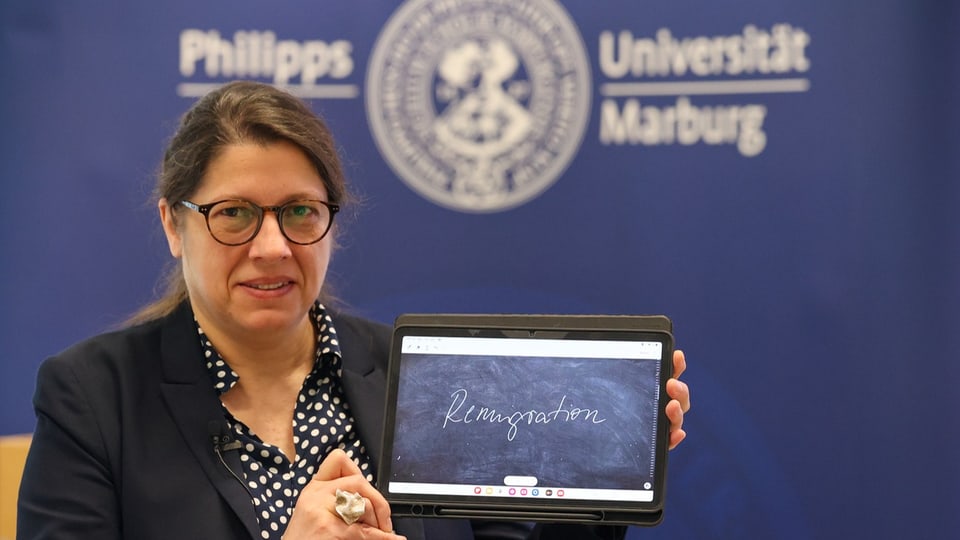Contents
“Remigration” is Germany’s “bad word of the year”. What is the point of this action, which always triggers heated debates? A member of the Unwort jury explains their work.
With the annual election of the bad word, a German jury of linguists draws attention to the use of problematic words. It is often about neutral terms that are ideologically appropriated.
“Remigration” as a fighting term
This is also the case with the bad word of the year 2023: “Remigration” is actually a social science term that describes, for example, the voluntary return of persecuted Jews to Germany.
Legend:
The “Young Alternative” holds a banner with the inscription “Remigration” during an AfD demonstration on October 28th in Erfurt.
IMAGO IMAGES/FUNKE FOTO SERVICES/SASCHA FROMM
According to the five-person selection jury, the word is now mostly used as a “right-wing fighting term” and “euphemistic cover vocabulary”. According to the jury, it had “become a euphemism for calls for forced expulsion and even mass deportations of people with a migration background.”
The reasoning sounds more like sociological analysis than linguistic differentiation. Political linguistics, which examines linguistic strategies such as reinterpretations of terms, deals with this topic, explains Constanze Spiess. She is a jury member and linguist at the University of Marburg.
Suggestions from the people
The “Unwort” campaign has existed since 1991 and, as an “independent civil society campaign,” represents a voice in the discourse, says Spiess. Citizens can submit terms until the end of each year. “Remigration” was sent in 27 times.
Only the subsequent research and contextualization led to the award from the jury: “Our concern is to reveal the mechanisms underlying the use of words and to raise awareness of language use,” says Spiess.
The great danger of supposedly harmless terms like “remigration” is that the word is associated with highly dangerous concepts that enter common usage through books or lectures. “Many people don’t know what meaning concepts are associated with it,” says Spiess, “so right-wing populist and right-wing extremist positions can be perceived as normal.”
Criticism of non-word freestyle
These considerations and justifications from the jury always receive headwinds. This is how a user writes on X as a comment on a post: “This jury has been acting as a language police for 30 years and wants to steer the public debate in the spirit of its anti-German ideology.”

Legend:
Constanze Spiess, linguist at the Philipps University of Marburg and jury speaker, presents the “Unword of the Year” 2023 on a tablet.
Keystone/dpa/Nadine Weigel
Another user writes: “It’s just strange that #remigration was barely mentioned in the German vocabulary until two weeks ago.” The term has actually only recently become part of a Germany-wide debate. The research network Correctiv made public a secret meeting of AfD and CDU politicians and right-wing extremists at which “remigration” was discussed. “That was a coincidence,” says Spiess. The term appeared in the German Bundestag in January 2023.
The question also arises as to whether the “unword” serves right-wing populist forces by making a problematic term more widespread. “It makes little sense to know about a trivializing use of language and keep it quiet for fear of paying too much attention to the right,” is Spiess’ answer. Then there shouldn’t be any research like Correctiv’s.
Radio SRF 2 Kultur, 100 seconds of knowledge, February 19, 2024, 6:54 a.m.
